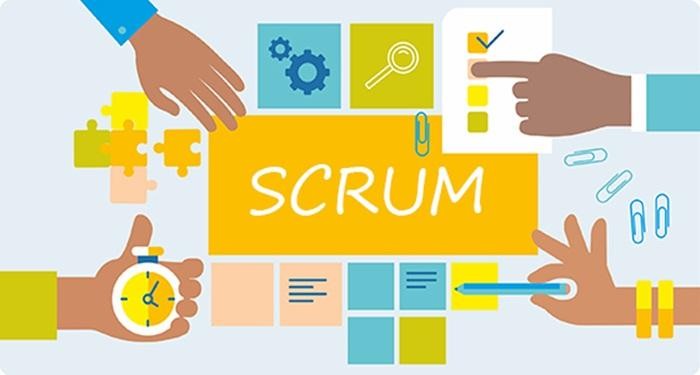
Who is a scrum master? Who isn't?
What is Scrum? Who is a Scrum Master?
Scrum is a software development methodology and framework. It encourages a flexible, iterative and collaborative approach, especially in complex and changing projects. Scrum was developed by Jeff Sutherland and Ken Schwaber in 1986 and later became part of the Agile Manifesto.
A Scrum Master is an "Agile Leader". But who is the "Agile Leader"?
He is a role model. He becomes an example to other team members by being the first to implement the values and behavior patterns he wants to live in the team.
The Scrum Master inspires. Makes the team think in such a way that the team defines its goals, achieves them and looks at it from different perspectives. That is, it promotes experience.
He believes in potential. He believes in the potential of each team member and supports the creation of the necessary environmental conditions for this to occur. Recognizes that all ideas and perspectives are valuable.
Creates an environment of trust. He knows how important an environment of mutual trust is for the team to realize itself. Scrum master tries to create a transparent, respectful, supportive work environment and "we" consciousness in his team.
Encourages joint decision-making. A scrum master knows how the sense of responsibility of individuals is strengthened when they participate in decisions and supports the team so that all decisions are made by the team.
Who is not a Scrum Master?
There are some misunderstood characteristics and duties of a Scrum Master. Here are some points about what a Scrum Master is not:
Not a Manager or Leader: A Scrum Master is not a manager or leader of the team. His main role is to promote team self-management, remove obstacles and enable continuous team improvement through collaboration.
Not a project manager: A Scrum Master does not plan and track projects like a traditional project manager. Instead, he manages the team's Scrum activities and ensures that the process runs smoothly.
He is not a superhero who tries to solve the team's problems: The Scrum Master is not a "superhero" who personally solves the team's problems. His role is to help the team identify their problems and encourage them to find solutions.
Not a Product Owner:
The Scrum Master is not the product owner and is not responsible for defining or prioritizing product requirements. This role (Product Owner) belongs to the Product Owner.
Not an authority giving orders to team members: Scrum Master is not a director giving orders to team members. Rather, he encourages and supports the team in making their own decisions.
Scrum Master primarily refers to the leadership and support role of ensuring that the team works according to the processes. By avoiding these misunderstood characteristics, the true potential of a Scrum Master can be better revealed.
Should a Scrum Master write code?
They don't have to, but they can. A Scrum Master is a role given to a person who will help a team work with Scrum principles to create value. Understanding Scrum principles like the back of your hand requires no coding knowledge.
When does a team need a Scrum Master?
The Scrum Master plays a key role in the success of the team. Let's summarize the Scrum Master's contribution to the team in four important points:
Managing the Scrum Methodology:
The Scrum Master manages the team's transition to the Scrum methodology. He guides teams especially new to Scrum, explains the principles and ensures that the team works in harmony with this new framework.
Ability to overcome obstacles:
When the team encounters problems that prevent the development of projects, the Scrum Master tries to identify and remove these obstacles. Thus, the efficiency of the team increases and it helps them to focus on the goals.
Enhancing communication and collaboration:
The Scrum Master fosters communication within the team and creates an environment of effective collaboration among members. This allows the team to better understand each other, share information and be more effective in solving problems.
Focus on continuous improvement and learning:
The Scrum Master encourages the team's continuous self-improvement. By holding retrospective meetings, it identifies the team's strengths and areas for improvement, thus creating a culture of continuous learning.
These contributions of the Scrum Master are critical to ensuring that the team is working according to Scrum principles and achieving a sustained rate of success. The Scrum Master maximizes the potential of the team and assumes an important leadership and guiding role to ensure continued success.
Difference between scrum master and project manager H3
The non-technical side of the scrum master is the project manager. Both roles focus on the "how" of work and process improvement and problem solving. Are both roles required to successfully manage projects? In short, no.
Although a project manager and a professional scrum master are responsible for helping teams get things done, their approaches are very different. Project managers set project milestones, report on team progress, and facilitate effective communication. But they do it from a place of control.
Rather, scrum masters help teams improve and streamline the processes by which they achieve their goals. They do this as a team member or collaborator - not in full control. The best scrum teams are self-organized and therefore do not respond well to micromanagement.
Write to us for the Scrum Master course.
IT business analytics course
